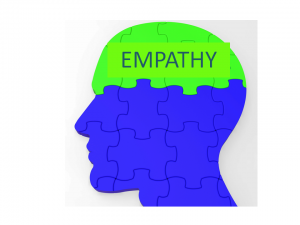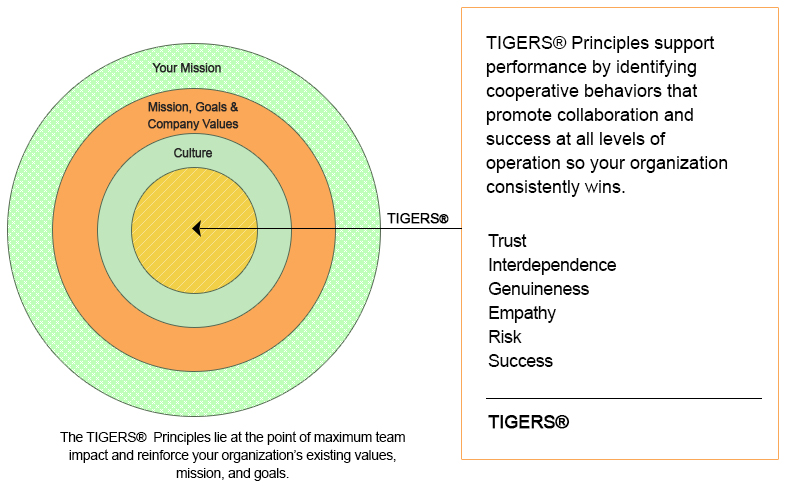 As a soft skill, empathy isn’t always easy to assess. During the hiring process, it often goes overlooked as a necessary attribute for success. This is a mistake for hiring managers. Empathetic leaders are valuable and important for a strong workplace culture.
As a soft skill, empathy isn’t always easy to assess. During the hiring process, it often goes overlooked as a necessary attribute for success. This is a mistake for hiring managers. Empathetic leaders are valuable and important for a strong workplace culture.
Empathy in the workplace is a universal team principle. It is the desire and ability to understand another person’s perspective or circumstance regardless of whether you agree with that person, according to the book, TIGERS Among Us. This quality allows individuals to put themselves in another’s shoes and imagine what they feel, desire or need. It is important for communications, peer to peer conflict resolution and for negotiation. It is a soft skill that packs a wallop when it comes to empathetic leaders.
Empathetic people make exceptional leaders because those who are empathetic desire to know and understand others. They are typically excellent listeners and ask questions with the intent of learning about people. They suspend judgment while they gain better understanding. They are also able to understand what others feel without being overly sympathetic or endorsing another’s feeling of victimization. This is all important for successful conflict resolution because understanding diverse perspectives allows collaborative solutions to rise from chaos. This is the true value of empathetic leaders in the workplace.
Fortunately, with proper training, empathy can be learned. The TIGERS Manager as Facilitator Training teaches leaders how to be good facilitators because good facilitators are able to bring people together to work toward solutions. As a result, groups are better able to accomplish more with high levels of commitment and accountability. By facilitating group dynamics the right way, leaders are able to encourage team members to buy into the process, making it more bearable by everyone. The training utilizes the six principles of trust, interdependence, genuineness, empathy, risk and success. As this article focuses on empathetic leaders, it’s important to note that empathy is like a muscle, and if it isn’t utilized, it will atrophy. Some strategies to keep your empathy strong include:
Empathetic leaders in the workplace, solicit feedback.
One of the easiest ways of getting onto the path for improved empathy is by seeking feedback from your team. Ask your team members for honest feedback on your leadership, and provide opportunities for your teams to talk candidly about their own needs within the organization in order to thrive. A willingness to improve your own performance along with thoughtful listening and self-observation are key factors required for leaders to provide an empathetic environment for their team members. And by listening to their team members, leaders learn how to best serve them and motivate them on an individual basis. They understand their team members, their needs and their desires and are able to match those needs with the overall goals of the company.
Empathetic leaders focus on behavior in the workplace.
As an empathetic leader, some behaviors that you can focus on to promote empathy include:
- Concern for the emotional safety of employees.
- Concern for emotional needs being met such as recognition and success.
- Concern for physical safety of employees.
- Concern for physical needs of employees being met.
- Opportunity for fulfillment.
- Kindness toward self and others.
- Fostering happiness and satisfaction toward self and others.
- Curiosity and the desire to understand others.
- Good listening skills.
- Good personal boundaries.
- Positive self-esteem.
- Coaching and mentoring to help people achieve personal and work goals.
- Good awareness and understanding of personal feelings.
- Good self-awareness through understanding personal feelings.
Empathetic leaders avoid behaviors that damage empathy
In order to keep and promote an empathetic workplace culture, leaders should avoid behaviors that damage empathy:
- Promoting winner and loser status within the same company.
- Promoting “Us” and “Them” status within the same company.
- Rationalizing that the end justifies the means.
- Jokes and pictures that degrade people.
- Allowing name-calling, insults, intimidation, yelling, bullying and threats to employees from management or between employees.
- Manipulation and coercion among managers and between employees.
- Promoting a pool of people with low wages so a few can become wealthy under the guise of keeping prices down.
- Denying human needs at work to cut costs or promote work efficiencies.
- Creating and knowingly selling faulty work that could harm customers based on opportunity cost justification.
- Devaluing or ignoring feelings as a valuable source of information.
Empathy is one of the six TIGERS principles for success. It is also an important soft skill that often goes overlooked during the hiring process. This is a mistake for HR and hiring personnel because empathy is one of the most important skills that are required for a leader to be successful and a workplace culture to be strong.
Empathy is the ability to step into another’s’ shoes and imagine what they are feeling and needing in the moment. As am empathetic leader, this skill is essential for understanding your team members and being able guide them and lead them to success. When a leader understands their team members on an individual basis, they are better able to discern their needs and address issues head-on.
Some strategies that leaders can implement to improve empathetic leadership include:
- Soliciting feedback from their team members on their own performances;
- Implementing behaviors that promote empathy; and,
- Avoiding behaviors that damage empathy.
Along with proper training, leaders can improve their empathy skills and better lead their teams to success.
Here are some additional resources that add to this conversation about empathetic leadership.
- TIGERS Among Us. Crampton, Dianne. Three Creeks Publishing (2010).
- 1 Real Reason You Should Make Empathy Your Mantra.
- TIGERS Manager as Facilitator Training.
- TIGERS 6 Principles Annual Micro-training for Managers and New Supervisors.
Copyright TIGERS Success Series, Inc. by Jennifer Zimmerman
About TIGERS Success Series
 TIGERS® Success Series takes the guesswork out of workforce development. TIGERS provides a comprehensive, robust system for improving both your work environment and profitability.
TIGERS® Success Series takes the guesswork out of workforce development. TIGERS provides a comprehensive, robust system for improving both your work environment and profitability.
We specialize in developing high performance work cultures. Scaled to grow as your organization and leadership performance grows, our proprietary Team Behavior Profile, Management training workshops, and online micro training packages are based on the six principles we have found to be the right mix to make this happen.
The TIGERS 6 Principles are Trust, Interdependence, Genuineness, Empathy, Risk and Success. Born from our many years of business, psychology, and educational group dynamic research, and subsequent four years of independent evaluation, we instill and sustain behaviors that improve work group performance and talent retention for measurable ROI.
For more information or to request a presentation to your group or association, call 1+877-538-2822. To subscribe to our complimentary newsletter, click here.